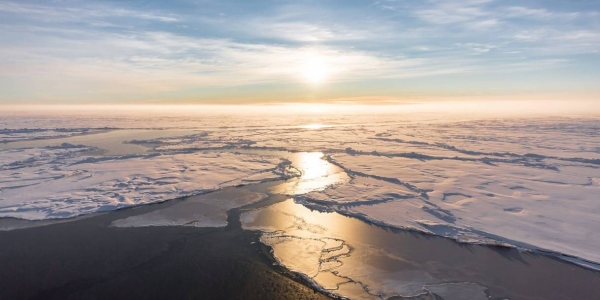Marine heatwaves are becoming more frequent and intense. The Arctic Ocean also suffers from this development: The absence of sea ice will lead to more extreme fluctuations in ocean temperatures, with abrupt temperature changes occurring at unprecedented rates. A new study led by the Alfred Wegener Institute shows how marine heatwaves will also become much more intense and frequent in the Arctic in the 21st century. With drastic consequences for the ecosystem. The researchers published their findings in the scientific journal Nature Climate Change.
The Arctic Ocean is the only ocean basin with large areas of sea ice cover. Underneath the sea ice, temperatures are relatively constant, because it reflects the sunlight and thus largely prevents the ocean from warming up through the atmosphere. However, due to climate change and its consequences, the Arctic sea ice is retreating more and more. As a result, periods of abnormally high ocean temperatures are becoming more frequent and intense. These heatwaves and the associated environmental changes may be unprecedented for the modern climate. An international research team led by the Alfred Wegener Institute, Helmholtz Centre for Polar and Marine Research (AWI) has now conducted a study to investigate how marine heatwaves in the Arctic could develop and impact the ecosystem in the future.
Dunnes neues Eis bildet sich zwischen Eisschollen, welche den Sommer in der Arktis überlebt haben. (Photo Credit: Stefan Hendricks)
Sci/Tech Top Stories Climate

